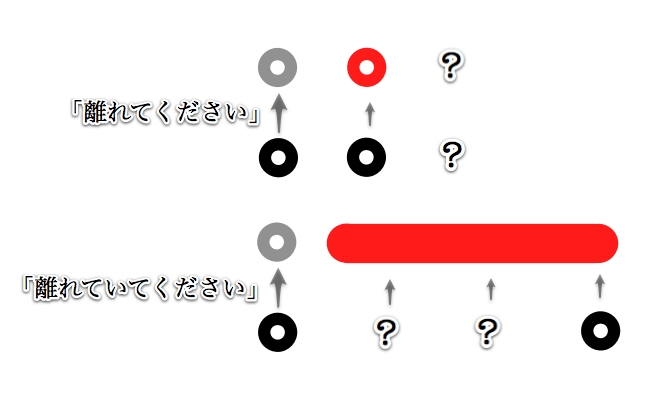Grammatically speaking, I totally and completely agree with Boaz Yaniv san.
But I guess Derek san might need ‘feeling’ when choosing the words.
I would think this way only based on my experiences.
てください
doesn’t require the listener’s attention to the speaker’s request so much, because it refers to one point in time. Therefore, てくださいtends to be used in easy-going situations.
- Time: now
- Things: in front of your eyes
- The speaker’s emotion: easy
- The listener’s emotion: easy
ていてください
requires the listener’s attention very much. Also, the speaker pays more attention to the way the listener answers to his requirement. The speaker’s feeling is ‘I’m always with you.’ This is because it refers to long time. Therefore, ていてくださいtends to be used in serious situations.
- Time: from now to the future
- Things: invisible
- The speaker’s emotion: serious
- The listener’s emotion: serious
Let’s see some words out of your word collection. (Excuse me for you, you, you expression.)
待つ
Your friends are walking on and on. You are left behind. You say 待ってください to them.
But they keep going. Then you say 待って(い)てください. (Your hope is growing stronger. You want to be with them and want them to wait until then. Your hope is sent to your friend by saying that.) (Of course you can say 待ってくださいagain, but the feeling is a little calmer than 待っていてください)
Another 待ってくださいcommon situation. Your Japanese friends are speaking Japanese very quickly and you can’t understand. Then you say 待ってください to interrupt their conversation.
Another 待っていてくださいcommon situation. You have to go abroad on work for a long time. Your girlfriend is home land without you. Then you say 待っていてください. (I’ll soon be with you! Then we are going to get married!).
生きる
You go to Japan for volunteer activity after a big earthquake. When you finish your work, you say 強く生きてください to the local people. It’s a pretty normal situation. The people accept your great kindness, because it is a kind farewell phrase for such people. But if I were an affected person, I would be happier to hear 元気で生きていてください. Some people might not feel such difference, but I would accept your be-with-you feeling. 生きてくださいsounds from distance for some reason. When I hear 生きていてください, I have a picture in my mind; you might come back to Japan in the future and we might drink to each other’s happiness!
見守る
You are a celebrity. You got married with your girlfriend. In a press conference, you say 僕たちを温かく見守ってください to the audience. (Well, sometimes you say 見守っていてください. But any celebrity has a pretending be-with-you feeling, I think.) After that, you hold a marriage party inviting your friends. You say 僕たちを温かく見守っていてくださいto your friends. (Well, of course, you can say 見守ってください. But if you have a strong emotion, you will naturally say the longer phrase to express your feeling.
All in all, contexts are more important than rules to understand the meaning. Some people say there are no such differences between them. I understand the opinion in some points. But the core meaning of two phrases seems like this, at least to me. This might be a hypothesis, but it might be interesting to add something to it or correct it through your Japanese experience.
Now, my English writing energy is up. Whew! I’m hoping you like this explanation. Thank you.

